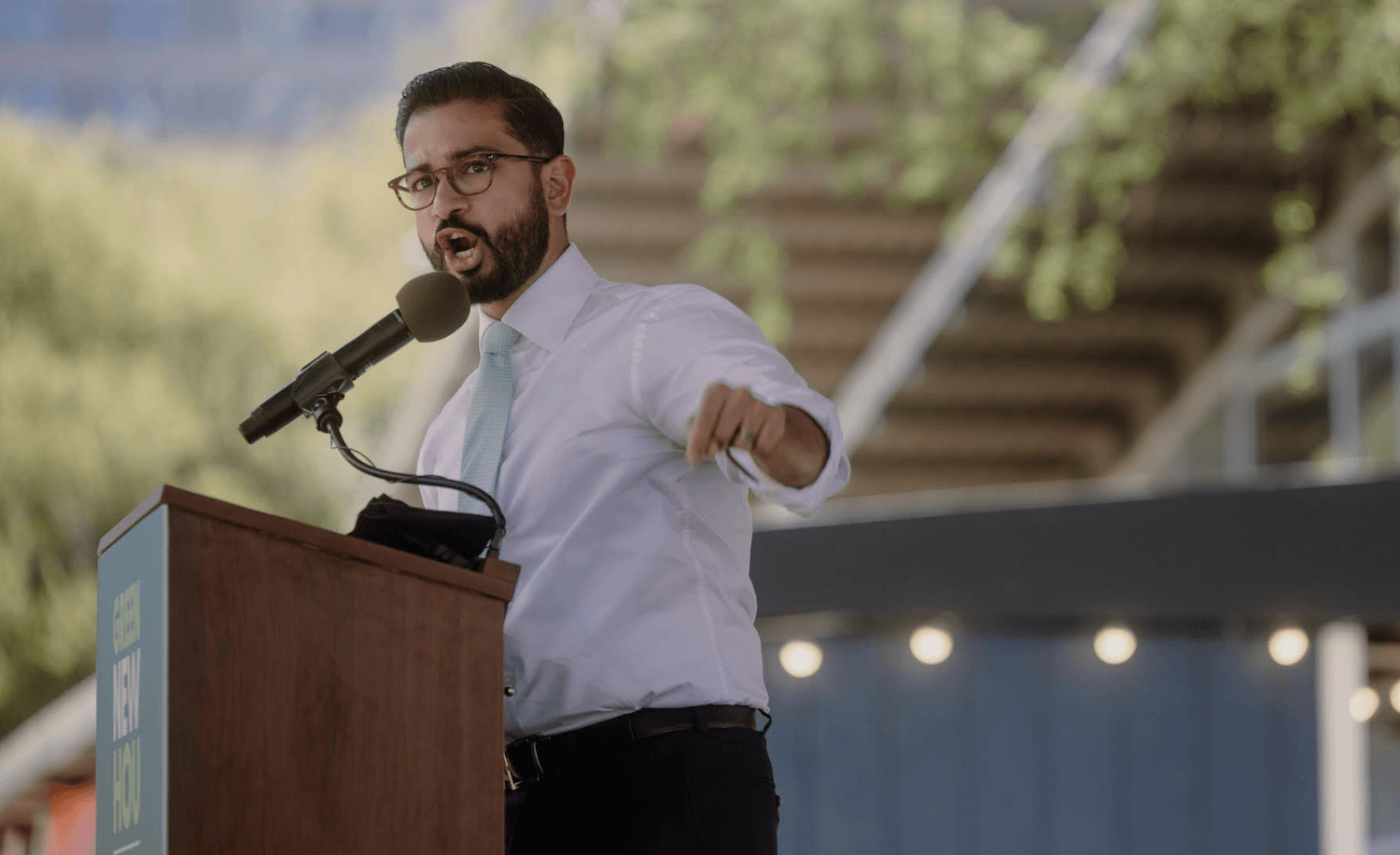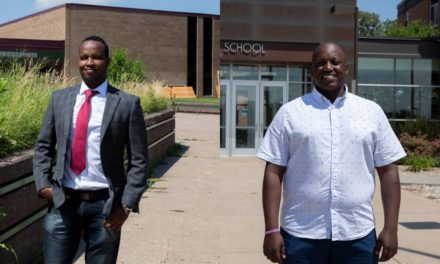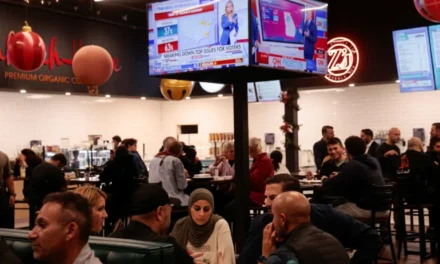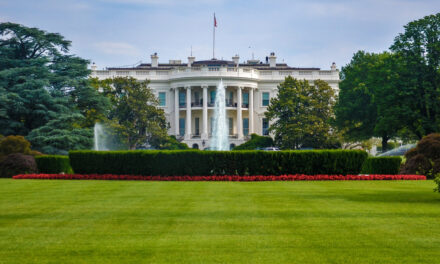In 2021 the American Israel Public Affairs Committee (AIPAC) launched a new super PAC so they could directly spend money in the 2022 elections.
AIPAC spent a lot. They poured over $26 million into the Democratic primaries via their United Democracy Project (UDP) PAC. The group never mentioned Israel in its ads or flyers, knowing full well that Israel no longer polls well among Democratic voters, but their money had a massive impact. Most of the candidates they backed prevailed.
An increasing number of Democrats have begun criticizing AIPAC in recent years, but those criticisms tend to focus on the amount of money the group spends and the fact that they support a number of insurrectionist Republicans. AIPAC’s agenda (support for Israeli apartheid and occupation) is rarely discussed.
However, we are seeing an exception in Houston’s recently redrawn 7th district. Progressive challenger Pervez Agwan is looking to unseat Democratic incumbent Lizzie Fletcher, who is backed by AIPAC due to her staunch support for Israel. “Israel is an apartheid state that commits atrocities against native Palestinians on a daily basis,” he recently told The Intercept. “That is something that should absolutely be criticized, but unfortunately, Republicans and establishment Democrats are too concerned with offending the Israel lobby who bankrolls their campaigns to be honest about what’s going on.”
Mondoweiss U.S. correspondent Michael Arria spoke to Agwan about his campaign, his district, and why he chose to address the lobbying group directly.
Mondoweiss: What compelled you to run for office?
Pervez Agwan: I come from a working-class family. My mother took care of us at home. My father was a blue-collar worker. He washed dishes, worked at a gas station and convenience store in New York. Running for office and getting a spotlight on me was never the plan, but there were a lot of factors that got me there.
I grew up in the newly drawn 7th district, my childhood home is there. I got married in the district. My son was just born here in the district. I went to middle school in the district. There were a couple personal experiences that really lit a fire in me to run to represent it.
My father came here with nothing in his pocket. He had just a few bucks and he worked hard day in and day out to provide for my brother, my mom, and me. He worked in the new oil industry. It’s a very cyclical industry, and he was eventually laid off in the last downturn. What happens in this country when you lose your job? You lose your health insurance. There’s no safety net. Obamacare isn’t really a working kind of proper market. We have billion-dollar health insurance companies that prevent us from accessing affordable care, so Dad lost his health insurance. He was an early diabetic, and he had heart disease. He was struggling. My father was too proud to share with us that he was struggling in the last few months of his life. Due to bills, he was driving an Uber at the end of his life. He didn’t have health insurance, he hopped around between different plans, and he couldn’t get the care he needed. He skipped blood tests, he skipped medicine. Passed away tragically, very suddenly, and it kind of woke me up.
I realized that so many people in this country don’t have health insurance, and they can’t get the care they need because it’s too difficult to navigate this for-profit health care system. I woke up to the fact that it’s going to take people of moral conscience and moral courage to really start shifting this country’s narrative in the right direction.
I started going down the rabbit hole of why is healthcare so broken in this country. I built renewable energy for a living, the oil lobby always working against what I do. Growing up, I saw the differences when it came to quality of education in some of the schools I attended, versus some down the road, in wealthier neighborhoods. After my father passed away, I thought people of moral courage and moral conscience have to step up. I’m proud I get to do this work for the community in Houston and take on the big corporations. So I threw my hat in the ring, and I’m proud to go run a people-powered movement.
You are running against the incumbent, Rep. Lizzie Fletcher (D-TX). She’s backed by AIPAC. Insofar as Democrats criticize AIPAC at all, they usually focus on the amount of money they spend and how they also back Republicans, but they don’t often bring up AIPAC’s agenda or Israel. Your campaign is an outlier in this regard, as you have tackled the issue directly. Can you talk about AIPAC’s influence on our elections and your decision to address the issue this way in your campaign?
The first thing I want to say is that this is all about human rights. This whole thing is about fundamental dignity and respect for every living human being on this planet. We cannot be selective with justice. We cannot be selective with how we define human rights. My problem isn’t just with AIPAC, it’s with every lobby that influences and corrupts politicians. It’s legalized bribery. It’s a quid pro quo: “We’re going to fund your campaign, sometimes behind the scenes. We’re gonna fund mailers and television ads, but then you have to stand with us on our issue.”
It’s a broken system. It’s not just AIPAC. It’s all these lobbying groups. Big oil lobbyists, Wall Street lobbyists. My issue with AIPAC is that they drop millions of dollars on congressional campaigns and support candidates who are fine with pushing their message of propaganda. You take millions from AIPAC, and then you don’t talk about human rights for Palestinians, right? They spend millions trying to smear those who don’t bend to that message. It’s legalized bribery, and we’re not going to stand for it. We’re not just targeting AIPAC; we have an issue with all these lobbying groups.
As politicians, we need to be honest about it. We can’t be living in fear of this one group spending millions. The goal is to win ethically, and it’s not ethical to bend to a lobbying group representing the interests of a country that’s egregiously violating the human rights of the native people there. We need swift campaign finance reform because the system is broken, and it won’t change if big lobbyists like AIPAC are able to buy politicians and pay for their silence. Lobbyists are harming our democratic institutions. Democracy doesn’t work when massive super PACs and big lobbyists are funding politicians. I’m running to change that.
We’ve seen more legislation highlighting Palestinian rights in recent years, like Rep. Betty McCollum’s historic bill seeking to end U.S. support for the detention of children. We saw a number of Democrats boycott Israeli President Isaac Herzog’s recent speech to Congress, and there were even some Democrats who voted against the recent apartheid resolution. Polling shows that support for Israel has declined rapidly among Democratic voters. What are your thoughts on the current state of the issue among Democrats?
I’m on the ground, and it’s definitely getting better. I said this before, but it’s about universal justice and truth with this campaign. We do not mince our words. We go out there and objectively talk about all the issues, but many Democratic politicians have a long way to go when it comes to the Palestinians. There’s a recent poll [from Gallup] showing that Democrats view Palestine more favorably than Israel. People are waking up to the truth.
On this issue, the Democratic party is only as strong as its voters and the people who are becoming part of it. I’m running to fundamentally shift what the Democratic party stands for. We should be a party of truth and justice, not lies and not corruption. Current Democratic politicians including the one I’m running against [Rep. Lizzie Fletcher] are supported by lobbying groups like AIPAC, and plenty of them are still pushing anti-Palestinian rhetoric. There’s nothing wrong with standing for the human rights of the people in Palestine and calling out settlement building. There’s nothing wrong with calling it out.
We have definitely seen some progress. I think it would have been unthinkable in the past to see some of these stances in Congress. We should be in favor of fundamental human rights for everybody, and we should support people who want to see human rights respected all around the world. I don’t think the average person likes to see war crimes committed or senseless violence. I think Americans are tired of seeing our tax dollars going to fund wars, bombs, crimes, and human rights violations. If we don’t openly talk about this, it doesn’t change. I’m really proud and humbled that I get to do this here in Houston. I don’t want to win just for me; I want to win so I can get help other people elected.
Pushing the party to be honest requires politicians that aren’t going to bend or break to lobbyist dollars.
Can you talk about the community in this district? When you talk to people in the district, are they bringing up foreign policy at all? And if so, what issues are they bringing up?
I want to quickly mention that our platform is very broad. We’re a progressive campaign. Our Number 1 issue is universal health care. No one in the richest country on earth should have to go bankrupt or be unable to get the health care they need. Number 2, we lead the country in mass shootings. If you need a driver’s license to drive and buy alcohol in this state, I’m going to make sure you need a driver’s license and a background check to buy a gun. Number 3, we have to get big money out of politics. Number 4, we need renewable energy.
So we have a broad platform, and there’s a lot of things that resonate with people in this district in Houston. This district was redrawn recently, and it traverses two counties in Texas. It’s the most diverse district in the state. It has the largest Asian American and Arab American population of any district in Texas. It’s almost 80% non-caucasian, it’s one of the most diverse places in the country. Fort Bend County, where I grew up, is the most diverse county in America. Houstonians are generally with us on, not just this issue, but these other issues, and part of my job is to educate the community. We have to meet people where they are and talk to them about what’s actually happening.
We talk about facts. We’re not twisting any narratives. Folks here are sick of their representatives being bought and paid for before they even get to office. They hate the idea that lobbyists and special interest groups have such a massive sway in the political system. Foreign policy concerns come up. When we are in communities with large Arab and Asian populations, we hear about what’s happening in India right now, what’s happening in Syria, what’s happening in Yemen, and we hear about Palestine. In other neighborhoods, we might hear about the Ukraine, or what’s happening in China, so there’s pockets of concern in different places.
If elected, what would some of your foreign policy priorities be in Congress? What do you think progressive lawmakers can do to influence The White House on international issues?
I think we need to elect representatives that don’t bend to the military-industrial complex and its lobbyist groups. It starts with cutting our bloated defense budget. The United States spends more on defense than the next nine countries combined. Raytheon, Lockheed Martin, all these companies with defense lobbyists are making millions. Our tax dollars are going to fund projects for these companies. We’re spending billions on a war in the Ukraine, we’ve got billions going to Israel so they can fund an open-air prison in Gaza and keep people oppressed in the West Bank. Those are our tax dollars. Our defense budget is bloated, and we need to cut it. We need to fund schools. We need to fund clean energy. We need to fund hospitals. We need to put computers in the schools for kids in these lower-income neighborhoods, right? We have to fund infrastructure projects that help Americans but our tax dollars are being spent on these endless wars.
You have me on record here; I would refuse to continually vote on increasing the defense budget. We have to cut it immediately. We have to stop fueling the military-industrial complex. It’s imperative that we aren’t aiding human rights violators anywhere in the world with our tax dollars. We’re a country that claims to champion human rights, but it’s crucial that we put our money where our mouth is on this issue.
We need to elect more folks who are willing to be vocal and advocate for human rights and diplomacy. We need to elect people who are going to ignore what lobbying groups like AIPAC want and focus on what will do the most good. We have to build strength in numbers. It’s not just about me; we need to build a coalition, and a coalition is only as strong as the people who are willing to make it happen and lead it. We have to be strong, principled, and bold when we get into Congress. We can’t be pushovers.














